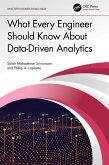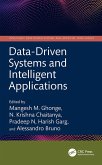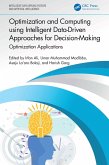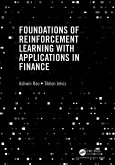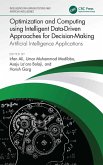- Utilizes practical examples from different disciplines and sectors within engineering and other related technical areas to demonstrate how to go from data, to insight, and to decision making
- Introduces various approaches to build models that exploits different algorithms
- Discusses predictive models that can be built through machine learning and used to mine patterns from large datasets
- Explores the augmentation of technical and mathematical materials with explanatory worked examples
- Includes a glossary, self-assessments, and worked-out practice exercises
Written to be accessible to non-experts in the subject, this comprehensive introductory text is suitable for students, professionals, and researchers in engineering and data science.
Dieser Download kann aus rechtlichen Gründen nur mit Rechnungsadresse in A, B, BG, CY, CZ, D, DK, EW, E, FIN, F, GR, HR, H, IRL, I, LT, L, LR, M, NL, PL, P, R, S, SLO, SK ausgeliefert werden.



